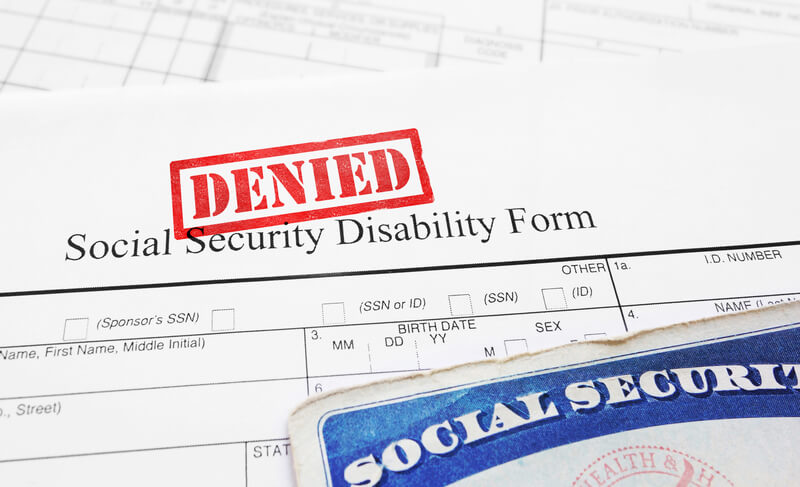Do you feel dejected after receiving a denial of your Social Security Disability (SSD) benefits?
Thankfully, you do have options. This setback is not the end of the road. You can appeal the decision and increase your chances of SSD appeal success and get what you deserve.
The appeals process is multi-faceted, intricate, and filled with strategic decisions. Furthermore, there are strict deadlines and other expectations to meet. Success is within reach, but it requires careful planning and potentially the guidance of a skilled attorney.
Your future is too important to leave to chance. Take the first step towards resolution by exploring our guide today.
A Brief Note About SSD Appeals
SSD benefits are a lifeline for many individuals suffering from disabilities that prevent them from working. Unfortunately, the initial application process can be arduous and has a high denial rate. When an initial claim gets denied, an appeal can force a review of the decision. You can also learn how to prove you qualify for mental health benefits with SSD.
Appeals are more than a second bite at the apple. It is a multi-step procedure that requires meticulous attention to detail. First, there is the reconsideration stage. Then, there may be a hearing before an administrative law judge. Subsequent steps may include a review by the Appeals Council and filing with a federal court. It is crucial to have proper guidance considering the emotional and financial stakes involved.
The decision to appeal instead of filing again is often a strategic one. Sending a new application can be more time-consuming and lead to the same result. However, an appeal offers a chance to correct deficiencies and present new evidence. Experienced Social Security attorneys are adept at interpreting the relevant laws and advocating for clients in these situations.
Steps to Increase Your Chances of SSD Appeal Success
Timely Filing of an Appeal
The clock starts ticking when you receive a denial for your SSD benefits. Adhering to the deadlines is not just a mere formality. It is a crucial part of the appeals process. Usually, you have 60 days from the date of the notice to file an appeal. Missing this deadline can mean forfeiting your right to this process and starting over again. Being timely is critical to increase your chances of SSD appeals success.
Gathering and Organizing Supporting Documentation
Your case is only as strong as the evidence that supports it. Medical records, employment history, and other essential documents are the backbone of your appeal.
These materials must present a clear and compelling argument. Missing or inconsistent information can lower your odds. Therefore, it is vital to pay careful attention to the details.
Nonetheless, collecting and organizing this information is far from trivial. It involves communicating with multiple institutions and getting relevant documents that align with legal requirements. A seasoned SSD attorney will know what to look for and how to present it.
Choosing the Right Attorney
Finding a local lawyer can make the difference between success and disappointment. Not all legal professionals specialize in handling these cases. You should expect to find someone who understands the nuances and strategies of effective appeals.
Regardless, hiring the right attorney is about more than credentials. This phase is about finding a partner who will champion your cause.
Preparing for the Hearing
A hearing is where the stakes feel the highest for an SSD appeal. It is a formal proceeding where you present your case before a judge. The thought alone can be intimidating, but proper preparation is key to navigating it effectively.
An SSD attorney will help you turn the unknown into manageable steps. They will teach you the procedures, anticipate questions, and prepare the best responses. This legal counseling can give you the confidence necessary to tell your story.
Potential Pitfalls to Avoid
The first and foremost pitfall is to underestimate the complexity of the task at hand. Many individuals approach the process with the assumption their case is straightforward. Then, they find themselves entangled in a web of legal procedures, deadlines, and requirements. Sometimes, you could even be overpaid on you SSD benefits. But you can’t just go and spend what is supposed to be yours. Each mistake you make along the way can diminish your chances of success.
Another frequent misstep is to navigate the appeals process without professional guidance. You may feel tempted to save money by handling this process alone. But the risk of errors or oversights can be high. Hiring an attorney allows you to avoid common pitfalls and gain invaluable insights.
Furthermore, it is easy to overlook the emotional aspect of your appeal. The journey through the system can be taxing. Stress and anxiety can impact your ability to state your case. Regardless, an empathetic legal partner who understands these dynamics can provide support and confidence.
Ask a Local Social Security Disability Lawyer for Help
There is more to increasing your chances of SSD appeal success than understanding laws and procedures. It is about standing up for your rights and securing the benefits you should have. Each step has challenges that require expertise and care. Fortunately, you do not have to face the journey alone.
We have helped over 5 million people find legal assistance in the United States! Contact us today for a referral by calling (866) 345-6784. Alternatively, you can complete our online form to get started.

